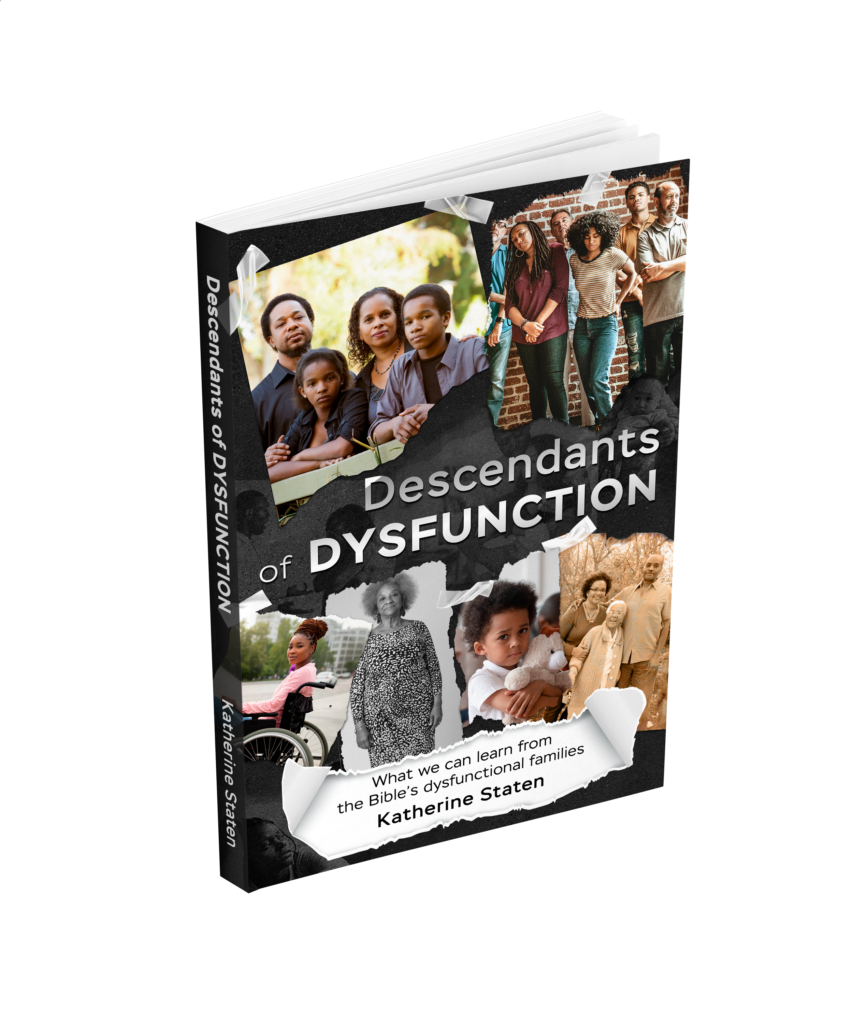Katherine L. Staten On Her Book Descendants of Dysfunction

TODAY’S PURPOSE WOMAN is proud to celebrate and promote authors who are impacting the lives of others both on and off the paper. We highlight and chat with remarkable authors about their books in our series, Powerhouse Authors.
We recently spoke with Katherine L. Staten, a health and human service professional for over 30 years. She has launched Flourish and Grow to promote trauma consciousness and healing from grief and loss. She facilitates pieces of training and workshops on trauma-informed care and healing-centered engagement that translate to a social impact model to facilitate personal, organizational, and community transformation and change.
Furthermore, Staten is a wife, mother, certified mental health first aid instructor, and author of her new book, Descendants of Dysfunction: What we can learn from the Bible’s dysfunctional families. The book is written in 7 stand-alone chapters. Each chapter gives a scriptural text outlining the dysfunction area to be discussed. Staten’s summary of the biblical text follows along with what makes the family dysfunctional and what makes them strong. She seeks to start conversations about family life that may be difficult and hopes readers will be encouraged to move beyond the pain to healing and live dynamic lives.

Below is our conversation with Staten about her book and why she feels it is essential in today’s world.
What inspired you to write Descendants of Dysfunction?
My years of working in health and human service programs with families and my desire to get to some of the root causes of some of the negative effects of early trauma, adversity, and family dysfunction inspired me to write this book. My study of the Adverse Childhood Experiences Study (ACES) and the lasting effect of early trauma brought science to what I already knew: stress and trauma can kill physically, emotionally, and in many other ways. This is what compelled me to write this book, and the stories of biblical families provide excellent content on family dysfunction.
Why do you feel this book is essential, especially now?
The book is essential because starting conversations about early trauma and dysfunction in our families brings us a step closer to acknowledging it. It also brings hope to many whose dynamic lives have been hijacked by the negative effects of early childhood adversity and family dysfunction. By highlighting the dysfunction of Old Testament biblical families, we can see their dysfunction and learn to accept great qualities from imperfect people. David was proclaimed a man after God’s own heart. Yet, his heart was turned away from his family, allowing rivalry, rape, shame, hatred, and murder to find a resting place in his home and family.
Who did you write this book for, and what do you want them to take away from reading it?
I wrote this book for anyone and everyone that has ever had difficulty or disappointment in or with family relationships. I also wrote it for anyone that has listened to years and years of sermons on the passages of scripture used (as a basis for each chapter) yet never heard the passage preached in a way highlighting the family relationships and dynamics that can negatively affect our life’s trajectory. I wrote it for the child that has always felt like an outcast no matter how much they crave their parent’s attention and love. I wrote it for a husband/ wife who feels unloved, competing for their spouse’s love and attention. I wrote it for the family scapegoat who wants to lift up the rug to reveal what is under it so the abused and neglected can begin to heal and thrive. I wrote it for anyone that knows the importance of healthy family dynamics. I want them to feel empowered to talk about hard things in therapeutic settings with the result of living the best dynamic life possible.
Is there anything else you would like to share?
When writing this book, my thoughts and goals were to minister to adults that have experienced family dysfunction. I am developing a framework for them to realize they can be: Dynamic despite dysfunction. The framework uses the acronym: DYNAMIC, which in this instance, means an individual who is influenced to grow, change, and interact, becoming a force to reach their highest God-given potential.
Connect with Katherine on social media.
FB: KatherineLStaten
IG: Katherine_L_Staten

